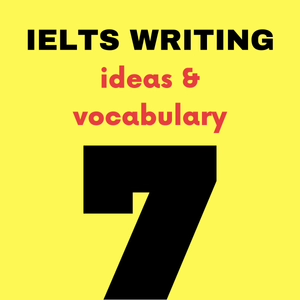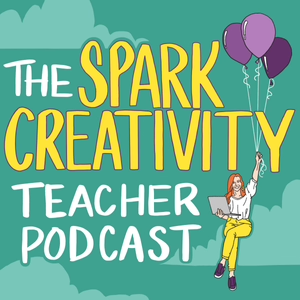
234. B2 Time Adverbs
03/30/25 • 19 min
Write to Mike Bilbrough to ask a question or give an opinion.
These are the B2 time adverbs you should learn for the speaking and writing of the Cambridge FCE exam. Listen for them in the podcast, and decide which I am referring to in the dialogue section at the end of the podcast. (B1 students also invited!)
firstly, etc. lastly, (often at the beginning of a sentence)
instantly (often at the end of a sentence)
temporarily (often at the end of a sentence)
currently (often before a verb)
sharp (at the end of a time phrase)
precisely / exactly (often before a time phrase)
increasingly (often before a verb)
roughly (often before a time phrase)
continuously (often before a verb)
constantly (often before a verb)
permanently (often at the end of a sentence)
gradually (often before a verb)
simultaneously (often at the end of a sentence)
eventually (often before a verb)
seldom (often before a verb)
shortly (often at the end of a sentence)
To see the transcript of the dialogues, go to my website: https://www.practisingenglish.com/podcast-234.htm
At https://www.practisingenglish.com/ I offer learners of intermediate-level English, grammar help and exercises and other English learning pages.
https://www.practisingenglish.com/
My latest novel for learners of B2 English is called The Tudor Conspiracy. You can see it on Amazon here: https://amzn.to/33Axu2N
https://amzn.to/33Axu2N
Be back soon with another podcast!
Mike Bilbrough (Secondary school English teacher and Doctor in English philology)
Write to Mike Bilbrough to ask a question or give an opinion.
These are the B2 time adverbs you should learn for the speaking and writing of the Cambridge FCE exam. Listen for them in the podcast, and decide which I am referring to in the dialogue section at the end of the podcast. (B1 students also invited!)
firstly, etc. lastly, (often at the beginning of a sentence)
instantly (often at the end of a sentence)
temporarily (often at the end of a sentence)
currently (often before a verb)
sharp (at the end of a time phrase)
precisely / exactly (often before a time phrase)
increasingly (often before a verb)
roughly (often before a time phrase)
continuously (often before a verb)
constantly (often before a verb)
permanently (often at the end of a sentence)
gradually (often before a verb)
simultaneously (often at the end of a sentence)
eventually (often before a verb)
seldom (often before a verb)
shortly (often at the end of a sentence)
To see the transcript of the dialogues, go to my website: https://www.practisingenglish.com/podcast-234.htm
At https://www.practisingenglish.com/ I offer learners of intermediate-level English, grammar help and exercises and other English learning pages.
https://www.practisingenglish.com/
My latest novel for learners of B2 English is called The Tudor Conspiracy. You can see it on Amazon here: https://amzn.to/33Axu2N
https://amzn.to/33Axu2N
Be back soon with another podcast!
Mike Bilbrough (Secondary school English teacher and Doctor in English philology)
Previous Episode

233. Uses of 'rather' (with dialogue)
Write to Mike Bilbrough to ask a question or give an opinion.
'Rather' and its uses
FORM/USE: 'RATHER THAN' + PHRASE
B1
Use a specialist book rather than the Internet. A book is more reliable.
Take the stairs rather than the lift. It’ll keep you fitter.
FORM: 'RATHER THAN' + NON-FINITE CLAUSE
B2
I’d prefer to go camping rather than stay in a hotel. It’s nice to be out in the fresh air.
Rather than sitting around doing nothing, why don’t you go and do some sport. (instead of)
I’d rather take the bus than get the car out.
FORM: WITH 'RATHER A'
ADJECTIVES
B2
Actually, I’m rather bad/good at playing football. I’ve got two left feet.
She lives rather a long way from school, so she’s often late.
FORM: WOULD + RATHER + PAST
I’d rather + indirect object + past (but it’s not a past)
I’d rather you didn’t go to that concert next Saturday. I don’t think it’s suitable.
I’d rather you stayed at home and helped with the baby. I’ve got to catch up with some work.
See the transcript of the dialogue: https://www.practisingenglish.com/podcast-233.htm
At https://www.practisingenglish.com/ I offer learners of intermediate-level English, grammar help and exercises and other English learning pages.
https://www.practisingenglish.com/
My latest novel for learners of B2 English is called The Tudor Conspiracy. You can see it on Amazon here: https://amzn.to/33Axu2N
https://amzn.to/33Axu2N
Be back soon with another podcast!
Mike Bilbrough (Secondary school English teacher and Doctor in English philology)
Next Episode

235. Future Perfect B2 (short story)
Write to Mike Bilbrough to ask a question or give an opinion.
LOOKING BACK FROM A POINT IN THE FUTURE - FUTURE PERFECT
I have studied / I have been studying English for/since...
(from the past to the present)
Next September, I will have studied / been studying English for ten years
(from the past to a moment in the future
I will have had this car for fifteen years next month.
I will have lived / been living in Seville for twenty-five years
This summer I will have been working for three years at the car factory.
The structure is the same for other verbs that use modal auxiliary verbs
I should study now
I should have studied in the past (but I didn't)
We call this the perfect infinitive.
I could work in the car factory
I could have worked in the car factory (but I didn't)
I might buy that sweater I saw in the shop window.
I might have bought that sweater I saw in the shop window. (but I didn't)
(Georgia on my Mind cover by M.A. Bilbrough)
Read the story transcript at my website: https://www.practisingenglish.com/podcast-235.htm
At https://www.practisingenglish.com/ I offer learners of intermediate-level English, grammar help and exercises and other English learning pages.
https://www.practisingenglish.com/
My latest novel for learners of B2 English is called The Tudor Conspiracy. You can see it on Amazon here: https://amzn.to/33Axu2N
https://amzn.to/33Axu2N
Be back soon with another podcast!
Mike Bilbrough (Secondary school English teacher and Doctor in English philology)
If you like this episode you’ll love
Episode Comments
Generate a badge
Get a badge for your website that links back to this episode
<a href="https://goodpods.com/podcasts/practising-english-255442/234-b2-time-adverbs-88786280"> <img src="https://storage.googleapis.com/goodpods-images-bucket/badges/generic-badge-1.svg" alt="listen to 234. b2 time adverbs on goodpods" style="width: 225px" /> </a>
Copy




